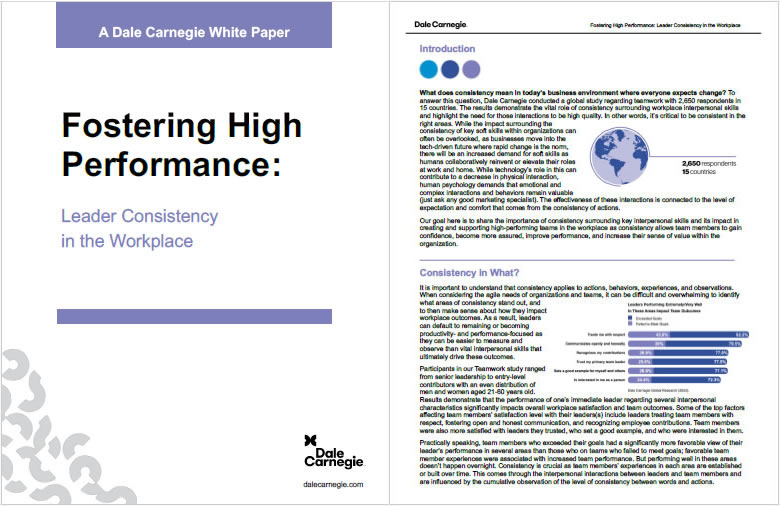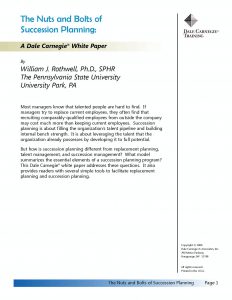Fostering High Performance: Leader Consistency in the Workplace

What does consistency mean in today’s business environment where everyone expects change? To answer this question, Dale Carnegie conducted a global study regarding teamwork with 2,650 respondents in 15 countries. The results demonstrate the vital role of consistency surrounding workplace interpersonal skills and highlight the need for those interactions to be high quality. In other words, it’s critical to be consistent in the right areas. While the impact surrounding the consistency of key soft skills within organizations can often be overlooked, as businesses move into the tech-driven future where rapid change is the norm, there will be an increased demand for soft skills as humans collaboratively reinvent or elevate their roles at work and home. While technology’s role in this can contribute to a decrease in physical interaction, human psychology demands that emotional and complex interactions and behaviors remain valuable (just ask any good marketing specialist). The effectiveness of these interactions is connected to the level of expectation and comfort that comes from the consistency of actions.
Our goal here is to share the importance of consistency surrounding key interpersonal skills and its impact in creating and supporting high-performing teams in the workplace as consistency allows team members to gain confidence, become more assured, improve performance, and increase their sense of value within the organization.




